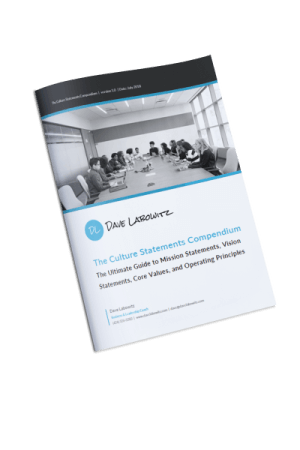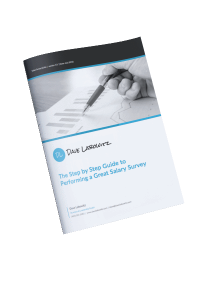For a long time, when people suggested I stop being a perfectionist, I rolled my eyes at them. I’d come back with a retort like, “Why would I want to be less good at what I do? By striving for perfection I achieve the best possible results!” I had perfectionism programmed into me since early childhood and I honestly thought it was the best philosophy.
As I got older I learned how damaging my perfectionism could be. Striving for perfection often led me to trouble of one sort or another. Sometimes I ended up delivering late because I put too much time into perfecting something and other times I didn’t deliver at all because I never felt my product was good enough. If you struggle with perfectionism, I’m sure you can relate!
I was recently listening to one of my favorite podcasts, “Online Marketing Made Easy” by Amy Porterfield. Her guest was life coach Brooke Castillo, and they were discussing reasons why we fail to get things done and what to do about it. Brooke said something that had a profound impact on me. “You want to produce at the level of B-... Work that you don’t produce at all does nothing in the world.”
I recognized the truth when I heard it, despite the old remnants of my perfectionist personality rebelling a bit. The more I thought about it, the more I agreed with Brooke’s assessment. But why does what she said resonate as true so strongly? Here are the top 12 reasons it’s so critical to stop being a perfectionist about your work.
1) You’re delaying completion and completion is everything
To Brooke’s point, if you get hung up perfecting your work indefinitely, you never complete it. And if you never complete it, then all that time you spent perfecting it is completely wasted! Meaningful progress is measured in completions. Partially finished projects don’t move your business forward.
2) No one has ever been inspired or impressed by a bunch of almost finished work
Have you ever started a book, blog article, or website and never finished it? Exactly how many people did you touch or inspire with your unfinished work? You give yourself a chance to help people when you complete a project and put it out there where your audience can see it. If you’re serious about serving others, you need to move past your perfectionism.
3) Perfection leads to analysis paralysis
Perfectionism can impact decision-making as well as execution. When you get too hung up on making a perfect decision you can spend a ton of time gathering data, doing analysis, and ruminating. If you never make a decision and move forward, all you’ve been doing is spinning your wheels. Instead, gather and analyze data to the best of your ability in a reasonable time frame and decide decisively on a course of action.
4) The Pareto Principle (80/20 rule)
The Pareto Principle states that 80% of your results come from 20% of your effort. When you’re stuck in a perfectionist loop, you’re spending most of that time in the lowest performing 80% of your effort. Suppose you’re writing a blog article. You blow through a mostly self-judgment-free first draft; the draft takes you a half hour to write. Next, you spend several hours editing, restructuring, and re-writing. Then you put the whole thing aside to look at it with “fresh eyes” tomorrow before posting it. Tomorrow, you end up doing more editing and re-writing. Think about how much more value creation was in the first draft process rather than the perfectionist loop! I’m not advocating for posting non-edited first drafts, but be mindful that you’re not over-editing in a quest for perfection.
5) You’re keeping yourself in a place of "stuck" rather than gaining momentum
Forward progress is fun and rewarding. Completing a project feels good and is worthy of celebration! It’s easy to get stuck if you don’t stop being a perfectionist about your work. The more projects you get stuck perfecting rather than completing, the less forward momentum you have. In fact, you’ll be building up quite a bit of inertia from your lack of progress instead, which will make it even harder to get unstuck!
6) Your self-judgment provokes a life of fear and suffering
Think for a moment about the emotional impact of a perfectionist loop. It looks something like this: create -> judge -> find lacking -> suffer -> tweak -> judge -> find lacking -> suffer -> continue indefinitely. How miserable! Self-judgment and suffering make up the entire loop. It takes courage to break this loop (and I’ll write a separate article on this at some point) but once you do you are immediately replacing a judgment/suffering cycle with an accomplishment/reward cycle.
7) Perfectionism is the enemy of authenticity
The more you edit and twiddle with something the less it looks like your original message or concept. If you’re iterating based on market feedback and each revision is getting you more and more on message that’s okay. But if you’re reviewing your work over and over in your own head it’s likely that your self-judgment and fear are causing you to dilute the truth in your original work.
8) Your B- may be someone else’s A+
Did you ever turn in a term paper in school and get a better grade than you were expecting? It is always a pleasant shock when a professor thinks you did a better job than you think you did! This happens in business, too. There are no answer keys for building a business and there are frequently no correct and incorrect answers. Your market will evaluate your work through their own subjective lens. It’s very possible that the work you consider a B- might be your market’s A+. Remember, they’re looking at your work with zero of the self-judgment and fear that you’re working to release.
9) Pleasing everyone is impossible
No matter how amazing your work product is there will inevitably be people who pick on it, regardless. Even if what you put out there is completely on message for your ideal customer avatar, you have to remember that there is still variability in your avatar’s demographic. Some people will love your work. Other people won’t. And an unfortunate truth of today’s world is that the people who don’t may very well be the loudest, especially on the internet. To quote Lady Gaga, “Social media is the toilet of the internet.” So don’t let negative online feedback bother you… just flush the crap! Business isn’t about making everyone happy; it’s about helping those you can.
10) The product you launch is probably not final, anyway
Depending on what your work product is, in many cases, you can iterate and refine it after you’ve gotten some feedback from your market. This is best practice in startups these days, anyway! Think about lean and agile principles in a software startup. It is customary to create a Minimum Viable Product (MVP), launch with that to beta customers, and then expand and refine the software once you’ve gotten market validation. This ensures you’re building only what the market wants, not just what you think it wants. If your product is something like an ebook or blog article, it’s easy to make edits after you’ve made version one public. Go ahead and launch. You can iterate later.
11) Perfectionism leads to micromanagement
Micromanaging is one of the biggest sins in the leadership game and if you fail to stop being a perfectionist you can easily fall into the habit. There is only ever one definition of perfection in anyone’s head at any one time: their own. If you're hung up on your own vision of perfection, you're leaving no room for your team to have any input. Instead of leveraging their creativity and feedback, if you’re demanding perfection you’ll end up imposing your narrow view of it.
12) Your team will follow your lead
If you're leading a team, remember they're going to model your behavior, compounding the effect of all your habits. If you don’t stop being a perfectionist then neither will they! The results will be the replication of all the negative impacts in numbers one through 11 across your entire team. Instead, take the lead and teach your team the pitfalls of perfectionism and make it safe for them to do B- work.
The next time you find yourself hoping to perfect your work by re-doing a bunch of it, remember this list and Brooke’s point. There’s nothing wrong with putting out B- work. In fact, you’ll probably build your business twice as fast that way!






